Have you heard of the new craze of drinking pickle juice and its possible health benefits? Is it too good to be true that this century-old juice can be an elixir with health benefits that are just now being explored? Though there are not many scientific studies, it does appear that pure ole pickle juice can provide benefits. In 9 Health Benefits of Pickle Juice – Kind Of A Big Dill, we explore those 9 benefits.
Will it help you and your maladies, perhaps. There are precautions to take if you decide to give pickle juice a try.
Pickle juice does contain on average 690 mg of sodium. If you have high blood pressure (hypertension), you should consult your doctor to see if it’s okay for you to drink as it’s important to watch your sodium intake. This article is for information purposes only and should not be used as an alternative to medical advice or seeing your doctor.
In This Guide We’ll Cover This and More:
Health Benefits of Pickle Juice
- Antioxidants: Pickle juice provides antioxidants that contribute to overall health.
- Blood Sugar Levels: Slows digestion
- Relieves Muscle Cramps: Pickle juice can provide rapid relief from muscle cramps. It contains vinegar, which may help stop nerve signals causing cramps.
- Muscle Soreness: May relieve muscle soreness.
- Probiotic Content: Naturally fermented pickles and their juice contain probiotics, which support gut health and digestion.
- Hydration Aid: After intense exercise or in hot climates, pickle juice with sodium and potassium can help rehydrate your body more quickly than water alone.
- Hiccup Relief
- Nausea: It seems salt alleviates nausea, and the sodium content found in pickle juice would explain why it would help relieve nausea.
- Weight Loss and Fat-Free Recovery Option: If you’re looking to replace lost electrolytes without consuming high-calorie sports drinks, pickle juice is a great choice.
Remember to choose vinegar-based pickles without yellow dye and preservatives for the best benefits. Start with a small amount if you’re trying it for the first time, and be mindful of sodium intake. Cheers to the tangy goodness of pickle juice! 🥒🥤
Video: 9 Health Benefits of Pickle Juice
What Exactly is Pickle Juice?
Simply put – pickle juice is the brine (liquid) you see in a jar of pickles. However, you can purchase products that contain just the juice and no pickles. You can even make pickle juice yourself. Most pickle juice contains water, vinegar, salt, dill, and sometimes sugar. Read the label to be sure it doesn’t contain any ingredients you don’t want – like perhaps sugar.
Why Pickle Juice?
Pickle juice may alleviate some issues you are having and can be an alternative to taking manufactured over-the-counter options that can contain ingredients you may not even understand or be able to pronounce when reading the label. Also, pickle juice is relatively inexpensive, which also can be an attractive alternative to medication.
Benefits of Pickle Juice

Antioxidants
Pickle juice contains antioxidants of vitamins C & E. Why is this important? Antioxidants help protect your body from damaging molecules, also known as free radicals. Free radicals are unstable atoms that can lead to damaged cells, which may cause illness and aging.
Blood Sugar Levels
Pickle juice may lower blood sugar levels by slowing digestion after a meal. Research as reported in the Journal of Diabetes Research vinegar, an ingredient of pickle juice, has been shown to have a glucose-lowering effect in patients with glucose abnormalities. Well-regulated blood sugar levels help keep you healthy.
Decrease Muscle Cramps
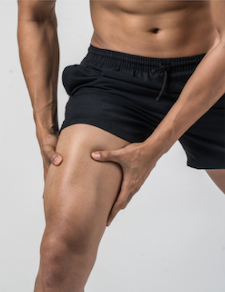
Drinking pickle juice has been touted by athletes from football players to cyclists as a viable product to relieve muscle cramps for years. One study showed that drinking pickle brine helped stop muscle cramping within 85 seconds. This is about 37% faster than drinking water and 45% faster than not drinking anything at all. As discussed and proposed in an article by the Cooper Institute, the reason for this decrease in cramping may be a reflex in the throat that is stimulated when drinking pickle juice and decreases the activity of neurons, which in turn causes muscle relaxation.
Decrease Muscle Soreness
In my own story, found in a prior post, Pickle Juice Benefits, I recount my skepticism with drinking pickle juice to experiencing the positive results after drinking pickle juice following two separate workouts. Again, there isn’t scientific proof, but for me, it was enough – for me, I didn’t experience the same post-workout soreness.
Expert Input: Dr. Joe Schwarcz has summarized research conducted by Kevin Miller, Ph.D., that recounts the findings that pickle juice does seem to help with muscle cramps, however, does not seem to help with athletic performance.
Digestive System
Fermented foods are good for the digestive system. Pickle juice encourages the growth of good bacteria and flora in the stomach. Digestive conditions that may be helped include indigestion, constipation, and gastritis.
Hangover Relief

Hangovers are partially caused by dehydration. It’s thought that because of the salt content of pickle juice after drinking it, you become thirsty and thus drink more water. Becoming rehydrated helps relieve the hangover. Another theory is that with the drinking of alcoholic beverages, there becomes an electrolyte imbalance. It’s thought that the salt in pickle juice introduces electrolytes back into the body.
Hiccup Relief
It’s suggested to take 1/2 tsp every few minutes until hiccups are gone. Pickle juice’s effects on hiccups may be due to the triggering of the gag reflex.
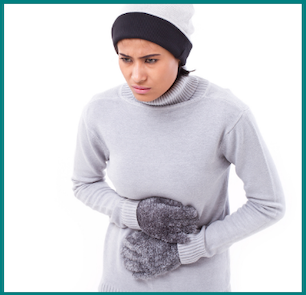
Nausea
We have all heard of a pregnant woman craving pickles. Though not pregnant, I have found pickles and pickle juice to work for nausea. It seems salt alleviates nausea, and the sodium content found in pickle juice would explain why it would help relieve nausea. Another theory as to why pickle juice is helpful with nausea is the vinegar. Vinegar has been a popular home remedy for stomach pain and upset for years.
Weight Loss
The possible weight loss effect found in pickle juice is thought to be the vinegar found in pickle juice. One study found that individuals who drank a small amount of vinegar daily saw more loss of weight than those who didn’t consume vinegar.
Be aware, however, that the high sodium content of pickle juice may lead to water retention showing up on the scale as weight gain.
Pickle Juice From a Jar? Sure, drinking pickle juice from a pickle jar is an option. However, I would use this option as a last resort as your pickles will have nothing to ferment in, leading to slightly shriveled pickles. I learned this from personal experience.
If you would like a recipe to make pickle juice yourself, I have one posted in Pickle Juice Benefits.
Pickle Juice For Sports?
Pickle juice sold in individual containers (without the pickles) is a convenient way to have pickle juice on hand. Though you can purchase pickle juice in a gallon container, I find the individual shot containers more convenient. They are easy to take with you, for instance, to the gym. They also come in 1 dose where there is no need to measure – just drink and discard the container.
FAQs
How can I use pickle juice in recipes?
Pickle juice can be used in various culinary applications, such as marinades, salad dressings, and even as a cocktail ingredient. It adds a tangy and savory flavor to dishes.
What should I look for when buying pickle juice?
When purchasing pickle juice, opt for varieties with natural ingredients and no artificial additives. Refrigerated pickle juice is often of higher quality.
How long can I store pickle juice?
Properly stored in the refrigerator, pickle juice can last for several months. Be sure to seal the container tightly to prevent contamination.
Additional Reading
In Conclusion
I have used pickle juice for muscle soreness and nausea. I believe, and can say, it did work for me. Can I say the same for you? No, I can’t make that claim, but it may be worth trying.
Is there a lot of scientific evidence that pickle juice has health benefits? No, not a lot. However, not having many scientific studies doesn’t mean it won’t work for you. You may find that even one of the benefits mentioned in 9 Health Benefits of Pickle Juice – Kind Of A Big Dill , may benefit you, which could prove enough.
Remember, if you have any medical issues, check with your doctor before ingesting pickle juice, as it does contain sodium.
Have you had any experience(s) with drinking dill pickle juice? I would love to hear about them – please comment below.
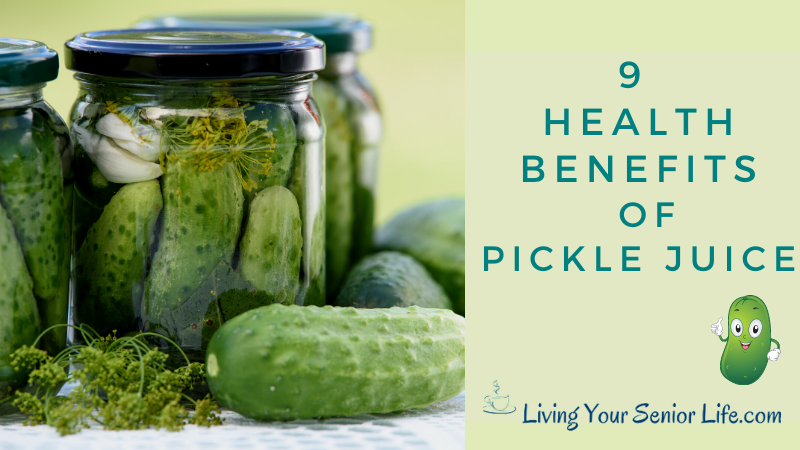

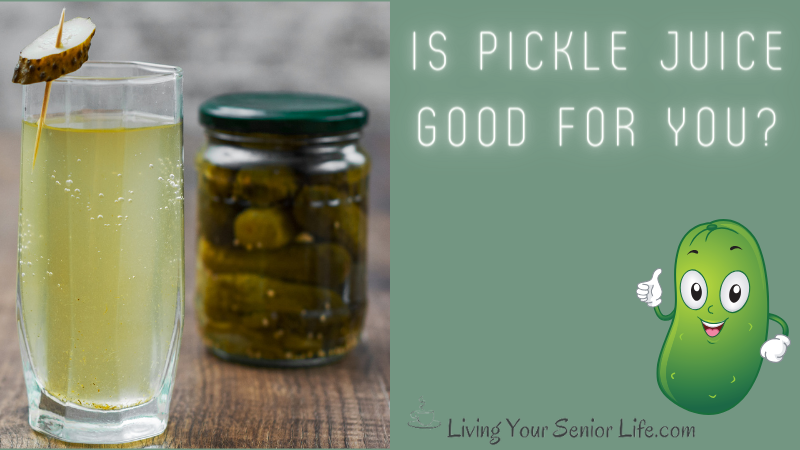
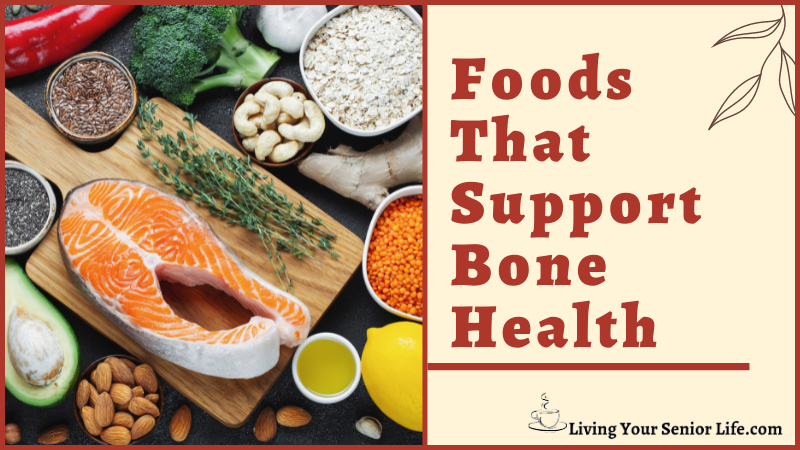



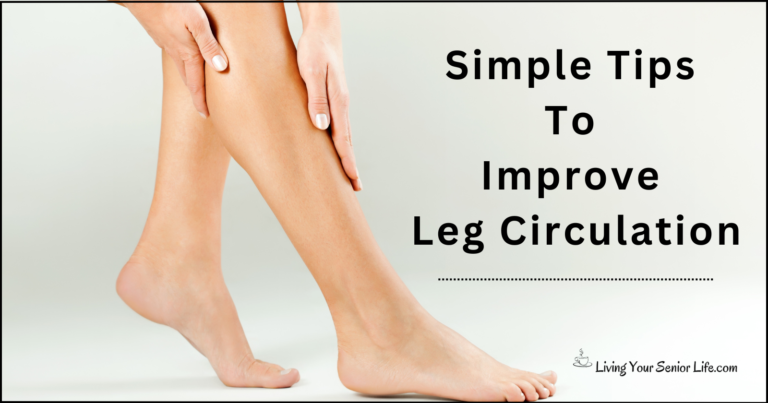



How much pickle juice each day?
Hi Theodore,
Thank you for your question. Pickle juice isn’t something you would need to take every day. It’s more when you have symptoms or after a hard workout. Be sure to check with your doctor especially if you have pre-existing conditions such as high blood pressure as it does contain sodium. You only take a small amount 2-3 ounces depending on your weight. It’s usually recommended 1 ounce per 100 lbs of body weight. Thank you again.
Pickle juice alleviates muscle cramps within seconds, it’s a miracle for me! I love it, find it to be refreshing and a benefit to my health.
Clarice Hall
Kirkland, Washington
Hi Clarice,
Thank you for your comment. Isn’t it amazing how well pickle juice can work? I agree, for me, it did wonders.
I drink pickle juice at the sign of cough or sore throat. Works for me. Vinegar kills pseudomonas bacteria I believe
Hi Jean,
Thank you for commenting. That’s interesting, I’m going to have to try it the next time I feel a sore throat coming on. I’ll also do some research and learn how vinegar interacts with pseudomonas. Thank you again for sharing.
You can freeze the pickle juice and make picklecicles but watch out they are addictive.
Hi Crystal,
Thank you for commenting. That sounds amazing – picklecicles. Do you put the pickle juice in ice cube trays or do you use a different method? Thank you again.
I love pickle pops! They sell Bob’s pickle pops at my local Walmart and I am indeed addicted. I eat them daily in the summer to ward off heat exhaustion. They help me immensely with leg and foot cramps too.
Hi April,
I hadn’t thought of trying pickle pops but you’re right they would be great especially in the summer – maybe even take one while going for a walk in the heat. You have convinced me to give pickle pops a try. Thank you for commenting.
After being awakened by very strong leg cramps at night, eating a pickle spear or two gives relief – I can feel the muscle relax almost immediately.
Hi Elsie,
Oh aren’t night leg cramps the worse! So painful! I’ll have to remember your experience and try pickles the next time I get one. Thank you for sharing.
I just love the taste of pickle juice, especially kosher dill pickle juice. I have always drank it.
Hi Joy,
It’s funny because when I first considered drinking pickle juice I wasn’t so sure how I would like it – but like you, I love the taste. Thank you for commenting and stopping by.